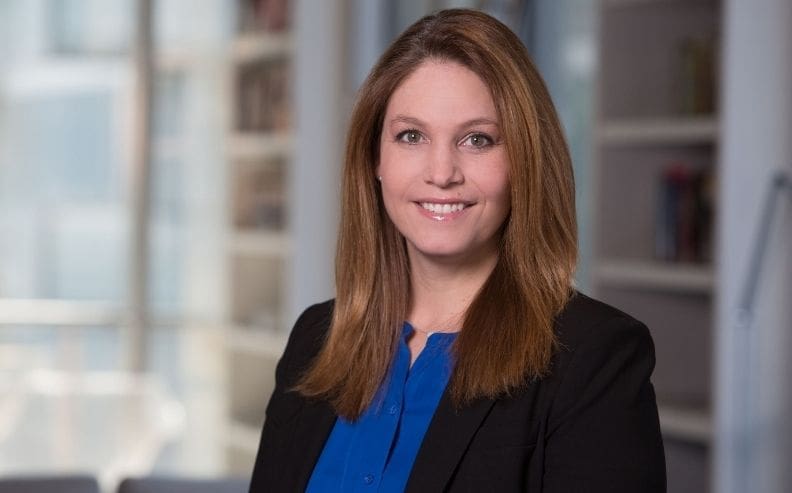Radiant Profile: Meet Developer Catherine Meyer
- Anne Garwood
- March 15, 2022
- Profile
- 4 MIN READ

We’re spending the entire month of March celebrating the women of Radiant, in honor of International Women’s Day. Today, we’re diving deep into the dev department to meet a young coder with big ideas.
Growing up in Colorado, Catherine Meyer wanted to be a veterinarian from as early as five years old. But now she’s a developer on Radiant Logic’s .NET team. So how did she make the shift from creatures to coding? Like everything in life, it was a process. (Here’s a hint: Python was involved, which feels like the perfect bridge between these disparate passions.) First, Catherine realized that veterinary medicine would require staying in school until she was at least thirty years old—and that “felt like a very long time before I could really get started with my life and career.”
Around the same time, Catherine started “messing around with a programming language called Python.” She was manipulating the RGB scale of images and “I thought that was really cool and since I was already on the fence about doing veterinary medicine, I realized computer science was what interested me now. So I went all in and changed my major.” Following that revelation, she transitioned her course-load to build her STEM skills. “It just made sense for me at the time, and I have no regrets about it, I loved it so.”
Go West, Young Coder
She was still in Denver then, but ended up transferring to Sonoma State in California, where she could complete her computer science degree within two years. Once there in the CS department, she worked part-time as a bank teller, then interned in the Sonoma County IT department. She ended up getting a BS in computer science, adding a minor in mathematics just for fun, explaining “I love numbers and math, so I had to.” (we love to see it, Catherine!)
Once she graduated, her friend at Radiant (hi, Nick!) told her about an opening at the company. “The opportunity came up and they were looking for a junior coder. So I submitted an application and the rest is history, I got the job.” Now she’s busy containerizing the engine of our Single Sign-On module (formerly/frequently known as “CFS” or “Cloud Federation Service”) to run in Docker containers.
Let’s Get Technical
While Catherine had focused on C++ and Python in school, she started out working in C# and the .Net ecosystem at Radiant, making our FTP server available in the cloud. She also modernized the RSA API we use within CFS and helped add OIDC and OAuth to CFS.
She realized what a difference her work could make when she learned that a huge federal customer relied heavily on something she’d had a major role in. “I was really excited to hear that the RSA API I revamped is being used every single day and that it’s really mission-critical.” Catherine’s also excited that another project she had a hand in, Radiant’s Azure AD toolkit, will be available in customer environments. “It’s very empowering to know that things I build are used in important deployments every day.”
A Young Woman in Tech
Catherine is a big proponent of more women getting into tech—or at least learning to code. “Those skills are necessary for any field, being able to use a command line and knowing how to traverse a directory and a file system is just super important for anyone, technical or not.”
She even challenged me to learn Python, her gateway coding language, explaining that “I hype on Python so much because it’s actually a really simple language to understand. You’re writing what we call ‘pseudo code,’ so it’s basically English and an easy entry point for people learning computer science concepts. In fact, that’s exactly how I learned.”
According to Catherine, learning a programming language makes it easier to understand the underlying concepts behind coding. “Once you learn how to write a for-loop, you know how a for-loop works and you just have to learn the syntax of how the programming language wants it, and from there it’s pretty easy to make that transition.”
Advice for the Code-Curious
Talking about the importance of women starting a career in the tech industry or taking on more technical roles across different industries, Catherine identifies a feeling that many of us struggle with when we’re learning new things or playing new roles: that sense of not being worthy that results from not feeling fully capable or accepted.
“Asking questions is part of learning, but I struggled with that a lot when I first started. I had major imposter syndrome and I was really afraid to ask questions. But it was actually kind of frustrating to some people that I wasn’t asking questions,” she explains, adding “don’t be afraid, there’s no such thing as a stupid question, especially when you’re in the early stages of learning.”
A Culture of Collaboration
According to Catherine, the Radiant dev team operates as an “open forum where we want to know what other people are thinking, so we can find the best possible solutions for our customers. We have a very active Slack channel where we offer different suggestions. That’s what really makes our team so strong: the willingness to help and collaborate. Just having a second pair of eyes or a different opinion is really helpful.”
While Radiant Logic has undergone a major transition away from being a founder-led organization, our dev team remains laser-focused on writing great code and adding powerful capabilities. As Catherine says, “our VP of engineering gives us the space to do the work, helping with roadblocks but never micromanaging. And our new Chief Product Officer has a strong sense of the industry and is bringing that to the dev team—he’s very innovative.”
The Maker Mindset
One thing Catherine said during our conversation really stuck with me—I hope this gives you the fire to build something new, whether that’s a computer program, a piece of sculpture, or a garden path.
“Be curious and don’t be afraid to fail. It doesn’t matter if you break something. Take it as an opportunity to learn.”
Explore more
Subscribe to receive blog updates
Don’t miss the latest conversations and innovations from Radiant Logic, delivered straight to your in-box.


